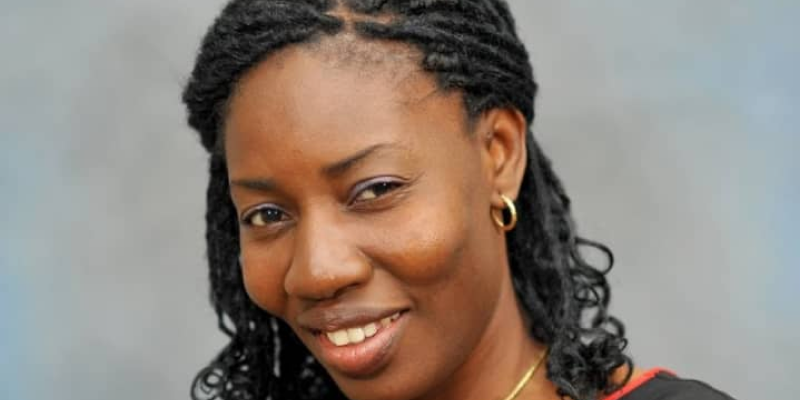Still on the issue of rape.
I discuss the legal and moral angle towards addressing the problem holistically.
I also offered a practical guide for the victim and the entire society in the concluding part of the interview.
Happy reading!
PLEACenter: Some are of the opinion that rapists are mentally ill persons who are also victims of abuse? What is your take on this?
It is not enough to say that rapists are a group of mentally ill people who were themselves victims of abuse; we need to take each case on its own merit. Section 27 of the criminal code (presumption of sanity) in our country still states that “every person is presumed to be of sound mind and to have been of sound mind at any time which comes in question until the contrary is proved”.
To answer this question, one must return to the pivot, why do rapists rape? There are several factors that come to play.
There are several factors related to rape. I will endeavor to mention a few.
Individual factors: Alcohol and drug use, coercive sexual fantasies, attitudes supportive of sexual violence, Impulsive, narcissistic and antisocial tendencies, preference for impersonal sex, hostility towards women, prior sexual victimization or perpetration. Of these, alcohol/drug use and prior sexual victimization are risk factors for both victims and perpetrators.
Relationship factors: Association with sexually aggressive or delinquent peers, a family environment characterized by physical violence, few resources, little emotional support, strong patriarchal and hierarchical relationship, and where family honor is considered more important than the health and safety of the victim.
Community factors: Poverty, low socioeconomic status, unemployment, lack of institutional support from police and judicial system, general tolerance of sexual assault within the community, weak community sanctions against perpetrators of sexual violence, armed conflict, and refugee settings.
Societal factors: social norms that engender inequality and acceptance of violence as a way to resolve conflict. Other societal factors include weak laws and policies related to sexual violence and gender equality, high levels of crime, and other forms of violence.
PLEACenter: Are there particular personality profiles that fit a potential rapist?
There are a wide variety of profiles that have been documented among convicted rapists. They include feelings of inadequacy or contempt for the victim usually because they are reminded of a negative or adverse experience. Some studies suggest that rapists display significantly higher levels of aggression, indirect hostility, assault, negativism as well as verbal hostility.Other studies have suggested that a majority of rapists have anti-social and narcissistic personality disorders.
Emily Kay Voller’s thesis in 2004 using the big five personality traits concluded that perpetrators of both sexual assault and rape reported greater levels of Neuroticism and lower levels of Openness and Conscientiousness when compared to non-perpetrators. In addition, rape perpetrators had significantly lower levels of Extraversion and Agreeableness when compared to non-perpetrators.
It is very difficult to fit a potential rapist into a specific category. Many people live very respectable lives and are highly revered in their professional and family circles but are predators. The important message is to educate potential victims about their rights to say no and their rights to be believed and taken seriously when they speak up.
PLEACenter: Are there specific profiles that fit victims; or characteristics that are common to victims?
Several factors have been linked to vulnerability for sexual victimization. Some of them include being female, young, a sex worker. Others are poverty, unemployment, homelessness, alcohol or drug use, previous rape or sexual abuse, multiple sexual partners, risky sexual behavior, incarceration/institutionalization, and mental illness or learning disability.
There are a number of mental disorders that can increase vulnerability to sexual assault. In one study, out of 269 adult patients who attended the Sexual Assault and Forensic Examination unit, affective disorders were disclosed in 48.7% of cases (depression, depression and anxiety, anxiety, bipolar affective disorder) and 3.0% declared having been diagnosed with a psychotic illness (schizophrenia, psychotic illness, psychotic behavior). Deliberate self-harm was disclosed by 29.4% and 22.3% of the patients had attempted suicide at least once in their lifetime.
With intimate partner violence, becoming more educated and economically empowered could increase vulnerability to rape and sexual assault.
PLEACenter: Some have opined that there are individual factors in the victims of rape that increases their risk of being raped. Some have mentioned factors like the mode of dressing, exuberant behavior, etc. What is your opinion about this?
The listing of dressing as a vulnerability factor for being raped has been disproved too many times for it to remain a part of a logical explanation for rape. We must completely separate issues of dressing when it comes to rape. It does more harm than good. It promotes a rape culture that says that someone else is responsible for your behavior and this is false. Contrary to popular belief, it has been proven beyond a reasonable doubt that sane men can control their sexual urges regardless of what they see. You are in complete control until proven otherwise.
” men can control their sexual urges regardless of what they see”
Women in “purdah” have been raped, babies in swaddling clothes have been raped, elderly women all wrapped up, and nursing mothers too. It is not about the length of the skirt, it is more about the permissiveness of the society to explaining rape not as the crime that it is but as behavior that can be prevented only if women dress better. It erroneously defends the notion that females are always the victims and males the perpetrators, this is not true.
PLEACenter: If you were to advise our girls, adolescents, young women, ladies, etc; what are those situations they should avoid getting into in order to avoid being exposed to rapists?
It is not just enough to talk to the girls, I will address the girls, young women and I will address the adolescents but I will also address the men, the bystander, and the person who is reading this article. Whether you believe it or not, we are all potential victims, so what must we do to make our society a safer place to live in?
To the ladies:
Stay alert and aware. Know where the exits are if you are in a building. In crowded places such as nightclubs, always let someone know where you will be. Do not go to isolated places in a building, if you must go, take a friend.
If you walk or jog for exercise, try to vary your route and time on the street. Being predictable is risky.
Take a self-defense course.
Trust your “gut instincts.” If a person, place, or situation makes you uneasy, leave, or change it immediately.
Always keep your phone charged and with you at all times.
Avoid being alone in isolated locations. If someone is leading you toward a secluded area, try to get away as quickly as possible.
Rape can occur when one or both individuals are under the influence of drugs or alcohol. Set limits on alcohol consumption.
Be aware of “Date Rape” drugs. Do not leave your beverage unattended or accept something to drink from someone you do not know well and trust. Even when you know and trust, ensure that you open your drinks yourself.
Attend large parties with friends you can trust. Agree to “lookout” for one another. Try to leave with your group, rather than alone or with someone you don’t know very well.
To other members of the community:
Recognize that people neither ask for nor deserve to be abused, harassed, assaulted or raped—ever!
Support and believe survivors of sexual violence.
Create a culture of enthusiastic consent: rather than waiting for a no, look for the enthusiastic yes before any sexual encounter.
Bring awareness and challenge victim-blaming statements: When discussing cases of sexual violence, a victim’s sobriety, clothes, and sexuality are irrelevant.
Report any suspicious activity or persons to the authorities!
Do not allow friends to boast about their ‘exploits’ without shaming them openly.
Let people know that you have a zero-tolerance to rape.
Let it show in the institutions and organizations where you work.
Insist on a sexual harassment policy for all institutions.
Get help or take action by directly intervening when you see someone taking advantage of a person who is not capable of giving consent.
If you witness sexual harassment at the workplace or in public places, expose the behavior. Don’t tolerate it.
Speak out against a rapist everywhere, whether that rapist is a spouse, a child, or other family members.
PLEACenter: What is your candid opinion about our justice system with regards to rape?
We have a long way to go. The awareness is increasing yes, thanks to our CSOs but we still have a long way to go. We need to train all stakeholders; schools, police, health care workers, and the public. But, this is not enough.
We also need to equip our hospitals for forensic investigations. Even when we have these rape kits, the chain of evidence needs to be pristine. We must begin to gather a database for sexual crimes so that we have DNA records to compare. The sexual offenders’ register also needs to be populated. The citizens must know the consequences of being on that register.
It is not enough to make the penalty more severe, we also need to empower victims to come forward and improve their pathway through the services. The law enforcement unit has a huge role to play in this. We must all educate ourselves and discourage the use of interviewing techniques that promote the rape culture and makes it more difficult for victims to come forward.
We need to stop treating the victims that come forward like criminals or accomplices to the crime.
PLEACenter: What do you think is the solution to this menace?
The CDC has a concise yet comprehensive package for prevention called the “STOP SV” approach.
Promote Social Norms that Protect Against Violence:
Bystander Approaches
Mobilizing men and boys as allies
Mobilizing religious leaders and gatekeepers as allies
Teach Skills to Prevent Sexual Violence
Social-emotional learning.
Teaching healthy, safe dating and intimate relationship skills to young people.
Promoting healthy sexuality
Empowerment-based training
Provide Opportunities to Empower and Support Girls and Women
Strengthening economic supports for women and families
Strengthening leadership and opportunities for girls
Create Protective Environments
Improving safety and monitoring in schools
Establishing and consistently applying workplace policies
Addressing community-level risks through environmental approaches
Support Victims/Survivors to Lessen Harms
Victim-centered services
Treatment for victims of SV
Treatment for at-risk children and families to prevent problem behavior including sex offending
PLEACenter: What should be the response of someone who has been raped? (What should they do?)
- Get to a safe place.
- Get Help.
- Take the Necessary Steps, this is very important. Even if you do not think that you will ever want justice, it is still important to report to the hospital immediately. The first inclination is to wash yourself, to be clean again but please, do not shower, wash your hands, change your clothes, brush your teeth, drink anything, douche, urinate, etc. All of these things will destroy evidence (things that your attacker may have left behind, such as fibers, hairs, saliva, or semen).
- Go to the hospital to have injuries treated, and have a rape kit done. You will be given treatment for STDs, pregnancy, and medications to prevent these.
- During this time, a report will be made to the police.
- It is the survivor’s right to change their mind at any time during the judicial process.
- Counseling is Vital.
- Important Things to Remember
- It was not your fault
- You can get through this.
- Help is available.
PLEACenter: What are the resources available for the support of rape victims?
There are so many helplines that you can call but I will share a few. There are people that you can reach out to depending on what part of the country you are in. Most health professionals will know about a crisis center near you. You can also look online or ask at a police station. Just remember that help is available. You can use this link that leads to a list of services and their contacts https://www.thebookbanque.com/sexual-abuse-support.
Mirabel center 0818 724 3468/ 0815 577 0000
Lagos DSVRT 08137960048
Gender Mobile 0700 000 0002
PLEACenter: Someone who feels he has the urge /tendency to rape, what should he or she do?
Please speak with a clinical psychologist. We can help with understanding the reason why you have this urge and begin to chart a course that will not put you and others at risk.


